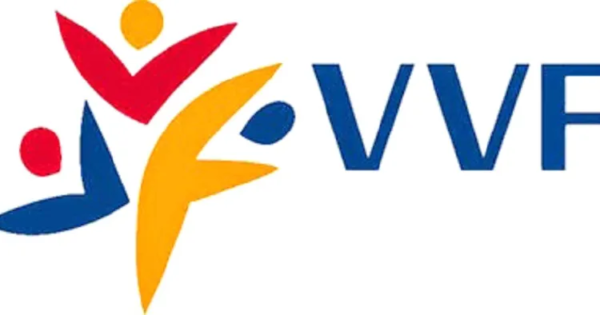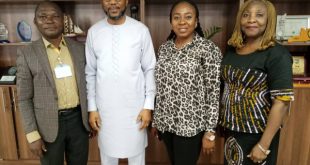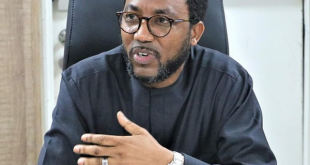Fatima Mustapha, a 42-year-old divorcee, is one among thousands of women who live under excruciating life conditions due to Vesico Vaginal Fisticula (VVF) across many communities in northern Nigeria.
Her condition is worsened by growing stigma against people living with the health condition.
Fatima, a resident of Maiduguri, the Borno capital and epicenter of the Boko Haram insurgency, has been abandoned by family and other members of the community who have found it difficult to bear the stench oozing from her body.
Her condition is caused by the uncontrolled discharge of urine associated with VVF.

In medical parlance, VVF is an abnormal congenital opening between the bladder (Vesico) and the vagina causing continuous involuntary discharge of urine into the vaginal vault.
It is often caused by prolonged labour, especially for teenage mothers, during childbirth and can also be as a result of violent rape of minor.
Narrating her ordeal, the mother of two traced her condition to an injury sustained during child birth.
“I gave birth at 12 and sustained a wound in my private part.
“At the beginning, my husband endured the condition, but later he divorced me and I had to move
to my mother’s place to seek some remedy to my condition.
“Nobody wanted to associate with me. No one was ready to share anything with me.
“I faced a lot of rejections in the community as people always feel uncomfortable relating with me. At a point, I almost gave up before I finally got help,” she said.
Another victim, Fatima Isa, 40, said that she had the problem during her fifth childbirth and had lived with the condition in the past 17 years.
“Life is not really easy because I am separated from my loved ones, including my sisters. I have been stigmatized by my families, friends and members of the community.
“Nobody accepts anything from me or share his food with me. I don’t go to social gatherings because of stigma. People get irritated when I go close to them,” she said.
Isa said she was treated at a hospital but the condition continued unabated till she received medical surgery sponsored by humanitarian organizations.
“The organization supported me, alongside other women, with free surgery at the Borno State Specialist Hospital, 10 months ago.
“It also empowered us with skills training through Borno State Ministry for Women Affairs and Social Development.
“Currently, I’m into cap knitting and I’m happy that I regain my normal life,” she said.
The two women are among the 600 fistula survivors who underwent repairs surgery supported by the United Nations Population Fund (UNFPA) and Korea International Cooperation Agency (KOICA). UNFPA and KOICA signed an agreement on a 5-year VVF support programme to be implemented from 2018 to 202.
The project tagged: “Fostering Resilience and provision of basic medical services for women and girls in Borno State, Nigeria,” focuses on providing free medical surgery and skills acquisition training to VVF survivors.
Mr kelvin Chukwuemeka, Sexual Reproductive Health Specialist, UNFPA, Maiduguri office, said that an ultra-modern Fistula Centre has been established at Specialist Hospital, Maiduguri.
He said that 626 women, who lost the hope of living normal life free of the involuntary dripping and leakage of urine, benefitted from free Fistula repairs at the centre.
The project, he said, was also designed to build resilience through the restoration of access to basic medical and social services in conflict-affected communities.
“The project aims at enhancing access to comprehensive maternal and child care, fistula care and improves capacity for result-based data management system.
“We conducted 600 fistula repair surgeries, supervised 47,429 deliveries by skilled health workers, while 108,561 survivors of Gender-Based Violence received specialized services with health and social cohesion within the last four years.
“In spite of the challenge of COVID-19 pandemic at the onset of the project, its implementation was not derailed throughout the four years,” Chukwuemeka said.
The UNFPA official said the women received starter packs at their treatment centers to enable them to set up their businesses and encourage their economic stability and resilience.
The beneficiaries are from Jere, Konduga and Maiduguri Local Government Areas of the state.
Available records showed that 40,361 people were reached with life-saving sensitization messages on the prevention of Obstetric Fistula. The exercise sought to mobilize communities and create awareness on fistula repairs.
The UN agency also trained 37 surgeons and nurses to update their surgical skills to conduct fistula repair surgeries effectively.
“Also, 27,598 individuals were reached with direct comprehensive and lifesaving Sexual and Reproductive Health (SRH) services in supported health facilities while 126,099 individuals were reached through mobile medical outreaches to the most affected communities within Konduga, Jere and Maiduguri.
The records further indicated that 225 frontline health and social workers comprising doctors, nurses, community health workers and GBV case workers were trained on Minimum Initial Service Package (MISP), Emergency Obstetric and Newborn Care (EmONC), Family Planning and Maternal Perinatal Death Surveillance and Response (MPDSR).
“This is to adequately provide quality reproductive and maternal health as well as specialized GBV services in an integrated form,” Chukwuemeka said.
He said that 10 mini ambulances were procured as part of mobile clinics to support referral of individuals with emergency conditions from their homes to the health facility.
Hajiya Falmata Gambo, Director in the state Ministry of Women Affairs and Social Development, says that the project has made tremendous positive impact on the lives of women and girls in Borno.
Gambo said that the UNFPA supported the survivors and mobilized them to come to the fistula centre for free surgery.
According to her, the UN group usually provides accommodation, feeding, counseling and psychosocial support up to the period victims get repaired.
“After the successful surgeries, they are being referred to the ministry for rehabilitation and psychosocial support through various skills acquisition and livelihood support.
“At the end, they are provided with grant and starter kits for the skills they are trained on, so that they can continue their lives and be accepted in the society and by their family members,” she said.
She said that research had documented several factors responsible for the prevalence of fistula in Nigeria, major among them being early marriage and pregnancy.
On causes of VVF, she said accidental surgical injury related to pregnancy, lack of education coupled with low socio-economic status and poverty among young women, had resulted to the prevalence of the condition in the state.
“About 87 per cent of rural childbirths take place at homes,” she fumed.
Speaking on the development, Hassan Abdulrahman, a maternal and child specialist said that Nigeria was one of the countries with the highest number of VVF cases globally.
Abdulrahman said that the prevalence of the condition in the country was due to failure of the government to address issues of sexual and reproductive health rights of women and girls.
To address the scourge, Hassan advocated for a law to ban child marriage.
“This law is necessary to save the country from the evil effects of VVF. It will tone down the number of women subjected to life of misery and stigmatisation due to obstetric fistula,” he said.
 MMS PLUS NG – Maritime, Aviation, Business, Oil and Gas News Online Newspaper with coverage in Maritime, Oil and Gas, Aviation, Power and Energy as well as Financial News
MMS PLUS NG – Maritime, Aviation, Business, Oil and Gas News Online Newspaper with coverage in Maritime, Oil and Gas, Aviation, Power and Energy as well as Financial News










